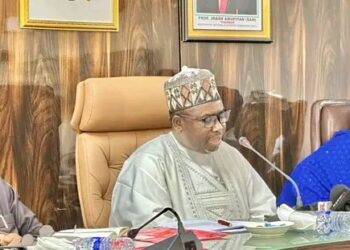The Federal Government says it will evoke the “No Work, No Pay” policy on members of the Nigerian Association of Resident Doctors (NARD) for the number of days that they observed the nationwide industrial action.
Mr Ado Bako, the Assistant Director, Information Public Relations, Ministry of Health and Social Welfare, disclosed this in a statement on Thursday in Abuja.
The News Agency of Nigeria (NAN) reports that members of the association embarked on a seven-day warning strike on Monday to push home their demands on the Federal Government.
The demand is to secure the release of their colleague, Dr Ganiyat Popoola.
Popoola, a registrar in the Department of Ophthalmology at the National Eye Centre, Kaduna, was abducted in December 2023, along with her husband and nephew.
Her husband was later released, while Popoola and her nephew remained in captivity.
According to Bako, the measure is in line with extant law and is not intended to undermine the legitimate concerns of medical professionals.
He added that the measure was to further ensure that essential healthcare services were not unduly disrupted to the detriment of the public.
He also said that the ministry was disappointed over NARD’s decision to embark on the seven-day warning strike.
He said NARD members disregarded all negotiations and plea attempts by the Federal Government to resolve the concerns.
Bako explained that the ministry, in collaboration with relevant security agencies, including the Office of the National Security Adviser (ONSA) had been working to ensure immediate and safe rescue of Dr Ganiyat Popoola.
“High-level discussions and coordinated efforts are currently underway and we remain confident that these measures will lead to a positive outcome.
“The ministry will not relent in its efforts to guarantee the safety, improve the welfare and working conditions of all healthcare workers, including resident doctors.
“Significant strides have been made in recent negotiations, and government has demonstrated good faith by addressing many of the concerns highlighted by NARD.
“The ministry finds the decision to proceed with this strike, in the midst of ongoing discussions, deeply regrettable.”
He, however, said that continued dialogue was the best approach to resolving outstanding issues.
He encouraged the doctors to return to the negotiation table so that stakeholders could collaboratively find lasting solutions to the challenges facing the nation’s healthcare sector.
Bako added that the ministry is open to constructive dialogue and committed to working with stakeholders to achieve a fair and sustainable resolution. (NAN)











